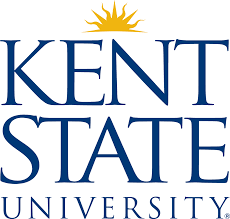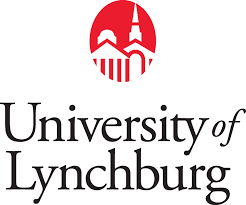10 Top Healthcare and Medical Cannabis Programs
Medical cannabis programs have a long and varied history throughout the world. In the United States, the use of cannabis for medicinal purposes dates back to the late 1800s, when doctors prescribed it for a range of ailments from menstrual cramps to insomnia.
During the early 20th century, however, many states began to criminalize cannabis and its use was largely replaced by other pharmaceuticals. In 1996, California became the first state to legalize the use of cannabis for medicinal purposes, and since then, several other states have passed their own medical cannabis laws.
These laws vary from state to state, but generally allow qualified patients to access cannabis products with a doctor’s recommendation, and often set up a system of dispensaries to provide these products. At the federal level, however, cannabis remains illegal and is classified as a Schedule 1 substance, meaning it has no recognized medical use. Despite this, many states have continued to expand their medical cannabis programs and extend access to more people.
Today, more than two-thirds of the US states allow the use of cannabis for medical purposes, and several states have even legalized the use of recreational cannabis. As the public perception of cannabis continues to shift, more and more states are likely to join this trend.
Table of Contents
- 1. Beale College
- 2. East Stroudsburg University
- 3. Mount Aloysius College
- 4. Western Carolina University
- 5. Thomas Jefferson University
- 6. University of Wisconsin Platteville
- 7. Kent State University
- 8. University of Lynchburg
- 9. University of New Haven
- 10. Bellarmine University
- Why Attend a Medical Cannabis Program?
- Professional Certifications
- What Jobs are in Medical Cannabis?
- Professional Resources
1. Beale College
Beale College does not offer cannabis education as part of its curriculum. While the college does not have a cannabis-specific program, students can pursue courses in general health and wellness, as well as courses in business and sustainability which could be used to explore the cannabis industry. Additionally, Beale College is home to the Beale College Cannabis Club, a student-run organization that seeks to provide education and advocacy around cannabis. This club hosts events, guest speakers, workshops, and panel discussions related to the cannabis industry.
- Campus Location: Maine
- Program: BS in Medicinal Plant Sciences
- Partner or Credits: yes
- Delivery: Online, 34 weeks
- Institutional Accreditation: Accrediting Commission of Career Schools and Colleges (ACCSC)
- Program Cost: varies
- Interested: Click here to find out more!
2. East Stroudsburg University
East Stroudsburg University (ESU) introduced a course on the history of cannabis in the fall of 2017. The course, offered through the sociology department, covered the historical uses of cannabis as a medicine and recreational drug, as well as the controversies surrounding it. It also delved into the legal and social impacts of cannabis use in the United States and internationally. This elective course was open to all students. In 2018, ESU expanded its offerings to include a minor in cannabis studies, encompassing biology, chemistry, sociology, public policy, and law courses.
The cannabis studies minor provides students with a comprehensive overview of the history, culture, and legal aspects of cannabis. In 2020, ESU launched an online certificate program in cannabis studies. The program is designed to provide students with a comprehensive understanding of the science, policy, and legal issues related to cannabis. The program is open to all students, regardless of their major.
Courses include:
- Philosophy 121 (Bioethics)
- Health 206 (Public Health and Cannabis)
- Health 205 (Medical Cannabis: Impact and Effects)
- Management 264 (Management of a Medical Marijuana Business)
Cannabis studies at ESU have continued to grow in popularity, with more courses being offered each semester. The university also offers workshops and events to educate students about the history and current use of cannabis. ESU is committed to providing students with the necessary tools to make informed decisions about their own cannabis use.
- Campus Location: Pennsylvania
- Program: Medical Marijuana and Public Health Certificate
- Partner or Credits: 18
- Delivery: Online
- Institutional Accreditation: Commission on Higher Education of the Middle States Association of Colleges and Schools
- Program Cost: not available
- Interested: Click here to find out more!
3. Mount Aloysius College
Mount Aloysius College has a long history of educating students about the potential medical benefits of cannabis. The college has offered a cannabis-focused elective course since 2019, and the course has been well-received by students. The course covers the history of cannabis, its pharmacology, the legal and regulatory environment, and the potential therapeutic benefits. It also offers insights into the cultivation, processing, and use of cannabis.
Additionally, the college has hosted guest speakers and events to provide further education and awareness on the subject of cannabis. The college also provides resources and support to students researching the medical benefits of cannabis.
- Campus Location: Cresson, PA
- Program: Healthcare and Medicine Certificate
- Partner or Credits: Green Flower
- Delivery: Online
- Institutional Accreditation: NA
- Program Cost: $2,300 for 3 classes
- Interested: Click here to find out more!
4. Western Carolina University
In partnership with Ed2Go, Western Carolina University offers a medical cannabis course. This inexpensive option covers the current healthcare applications of medical Cannabis and its effects on the body. Students also learn the history and culture of Cannabis, as well as the legal and social considerations of this emerging business.
- Campus Location: Cullowhee, NC
- Program: Certificate in Medical Cannabis
- Partner or Credits: Ed2Go, 8 contact hours
- Delivery: Online, 6 Weeks Access
- Institutional Accreditation: NA
- Program Cost: $89.00
- Interested: Click here to find out more!
5. Thomas Jefferson University
In partnership with Ed2Go, Western Carolina University offers a medical cannabis course. This inexpensive option covers the current healthcare applications of medical Cannabis and its effects on the body. Students also learn the history and culture of Cannabis, as well as the legal and social considerations of this emerging business.
- Campus Location: Philadelphia, PA
- Program: Cannabis Medicine Certificate
- Partner or Credits: 9 credits, can count towards a master’s degree
- Delivery: online and mostly asynchronous, takes about 1 year
- Institutional Accreditation: Middle States Association of Colleges and Schools
- Program Cost: $1,283 per credit
- Interested: Click here to find out more!
6. University of Wisconsin Platteville

- Campus Location: Platteville, Wisconsin
- Program: Cannabis Healthcare and Medicine Certificate
- Credit: 3 Units (8 weeks each)
- Delivery Mode: 100% Online, instructor-led, asynchronous
- Interested: Click here to find out more!
- Length: 6 months
- Program Cost: $2,300 total, with installment payment option
- Industry Partner: Green Flower Institute
7. Kent State University

- Campus Location: Kent, Ohio
- Program: Cannabis Healthcare and Medicine Certificate
- Credit: 3 Units (8 weeks each)
- Delivery Mode: 100% Online, Instructor-led, asynchronous
- Length: 6 months
- Program Cost: $2,750 total, with installment payment option
- Industry Partner: Green Flower Institute
- Interested: Click here to find out more!
8. University of Lynchburg

- Campus Location: Lynchburg, Virginia
- Program: Cannabis Healthcare and Medicine Certificate
- Credit: 3 Units (8 weeks each)
- Delivery Mode: 100% Online, instructor-led, asynchronous
- Length: 6 months
- Program Cost: $2,750 total, with installment payment option
- Industry Partner: Green Flower Institute
- Interested: Click here to find out more!
9. University of New Haven
- Campus Location: New Haven, CT
- Program: Cannabis Healthcare and Medicine Certificate
- Credit: 3 Units (8 weeks each)
- Delivery Mode: 100% Online, instructor-led, asynchronous
- Length: 6 months
- Program Cost: $2,750 total, with installment payment option
- Industry Partner: Green Flower Institute
- Interested: Click here to find out more!
10. Bellarmine University
- Campus Location: Louisville, KY
- Program: Cannabis Healthcare and Medicine Certificate
- Credit: 3 Units (8 weeks each)
- Delivery Mode: 100% Online, instructor-led, asynchronous
- Length: 6 months
- Program Cost: $2,750 total, with installment payment option
- Industry Partner: Green Flower Institute
- Interested: Click here to find out more!
Why Attend a Medical Cannabis Program?
Attending a medical cannabis program is beneficial for both patients and healthcare professionals. For patients, it provides them with access to information about the medical benefits of cannabis, how to use it safely, and what types of conditions it can be used to treat.
For healthcare professionals, a medical cannabis program provides an opportunity to learn more about the potential therapeutic benefits of cannabis, how to assess and recommend cannabis for their patients, and the legal and ethical considerations associated with the use of medical cannabis.
Professional Certifications
The Medical Cannabis Professional Certification is a comprehensive certification program designed to educate and certify healthcare professionals in the medical use of cannabis. The certification program is based on current best practices, as recommended by leading cannabis experts.
Upon completion of the certification program, healthcare professionals will be able to provide sound medical advice regarding the use of cannabis as a medical treatment. The certification program is offered through the Medical Cannabis Institute, a division of the International Cannabis Research Society.
What Jobs are in Medical Cannabis?
Below are some of the best jobs in the cannabis industry.
Cannabis Nurse
A cannabis nurse is a nurse who specializes in the medical use of cannabis. Cannabis nurses are typically trained in the therapeutic effects of cannabis, and often act as a resource for patients interested in the medical use of cannabis. Cannabis nurses may also be involved in educating healthcare providers on the medical use of cannabis and advising patients on the best methods of cannabis use.
Average Salary: $80,321 (ZipRecruiter)
Cannabis Physician or Medical Marijuana Doctor
A cannabis physician is a medical professional who specializes in the medical use of cannabis and its derivatives. This type of doctor is often referred to as a “cannabis specialist” or a “medical cannabis doctor.” They are responsible for assessing the medical needs of their patients, prescribing cannabis-based treatment plans, and providing education on the therapeutic uses of cannabis. In some states, cannabis physicians must be certified by a specific regulatory body in order to practice. Additionally, some states require cannabis physicians to register with the state in order to prescribe medical marijuana.
Average Salary: $272,959 (ZipRecruiter)
Professional Resources
1. National Organization for the Reform of Marijuana Laws (NORML): NORML is the leading organization advocating for the legalization of cannabis, providing legal and policy resources for cannabis professionals.
2. The Cannabis Business Alliance (CBA): CBA is a trade organization for cannabis businesses, providing resources and information to support businesses in the cannabis industry.
3. Americans for Safe Access (ASA): ASA is a national advocacy organization that works to ensure safe and legal access to cannabis for therapeutic uses and research. They provide resources and information to cannabis professionals.
4. American Cannabis Nurses Association (ACNA): ACNA is a professional organization for nurses and healthcare professionals working in the cannabis industry. They provide education and resources for cannabis professionals.
5. National Cannabis Industry Association (NCIA): NCIA is the largest cannabis trade organization in the United States, providing resources and information to cannabis professionals.
Related:
